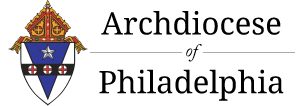Catholic or not, many of us remember Blessed Pope John XXIII with special affection — a man who committed himself to world peace and international justice. With his canonization just two months away, it’s a good moment to consider his legacy.
In talking about peace, John always began with the rights of the individual human person and the importance of the common good. Peace in the world begins in our own personal actions, and in public forums like Congress and state legislatures. We can’t build justice in foreign countries if we ignore it here at home. And we can’t protect our own rights unless we defend the rights of the weakest members of our own society.
John reminded us that “the whole reason for the existence of civil authorities” is to serve the common good, with a special preference for the poor. He taught us that the common good includes the needs of the whole human person — both body and soul.
The common good means the right to food and shelter and vital social services, especially for the marginalized. It means the right to decent working conditions and the right to basic economic security for widows, the disabled and the elderly. It means special support for marriage, children and the family.
And it also means the right to life of the sick, the unwanted and the unborn child — because the right to life is more than just another “important” issue; it’s the foundation stone of every other human right. Without it, every other right is a pious fiction.
When the Church urges us to have a “preferential option for the poor,” Catholics need to live it – and we do seek to live it though our inner-city schools, our work with the homeless and immigrants, and our services for the poor. No one, anywhere, anytime, is more committed to the common good than people who believe sincerely in the Gospel and then let their personal faith guide their public actions. The Catholic Church in Philadelphia has done – and continues to do – an astonishing job of outreach to persons in need, and we can thank God for that.
But Churches and charities can’t build a better society alone. Americans have a well-earned wariness of big government and a healthy insistence on limiting its interference with their rights and beliefs. But we do need government to do its rightful job. We do need government to serve the common good with laws that defend the weak, and with the money, personnel and other resources to ensure a life of basic dignity for all our people.
Anyone who knows the Epistle of James also knows that faith without works is dead, and words without deeds are empty. We need to prove our good intentions by the actions we take, both personally and through our public institutions. That means we need public policies that defend human dignity from conception, through childhood and adulthood, to natural death.
This year, 2014, is yet an election year. We need to live our citizenship seriously. We need to take an active part in the public conversation about our country’s direction, because our faith is a sign of real pluralism. Our faith serves the common good not just through Catholic schools and all our other social ministries, but also in the kind of officials we elect and the demands for justice that we place on them.
South Africa’s Archbishop Desmond Tutu once said that, “I’m always puzzled about what Bible people are reading when they say that religion and politics don’t mix.” Of course they mix, because they both deal with struggles over the nature of right and wrong, justice and mercy. They’ve always mixed – and on matters of vital public interest, they should. People of religious faith need to act with charity and prudence, but they nonetheless need to demand from both political parties a real commitment to human dignity — always starting with the unborn child but never ending there; always starting with the unborn child, but always embracing the poor, the elderly, the hungry, the jobless, the immigrant and marginalized persons at every stage of human development.
That’s the kind of Christian witness “Good Pope John” hoped for all of us. That’s our Catholic service to the common good. And when our public institutions support that vision of the common good with the money, personnel and resources to make it real, that’s when our nation and world will begin to embody what John XXIII meant by peace.
Editor’s Note: Columns will be published each week on www.CatholicPhilly.com and can also be found at https://archphila.org/archbishop-chaput/statements/statements.php.
Contact
Kenneth A. Gavin
Director of Communications
215-587-3747






